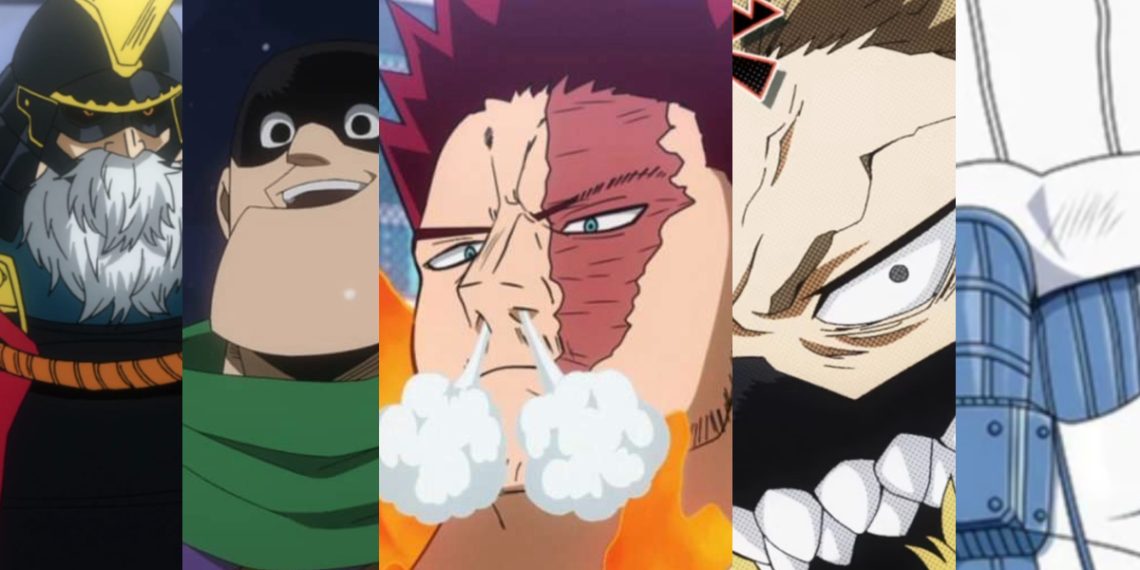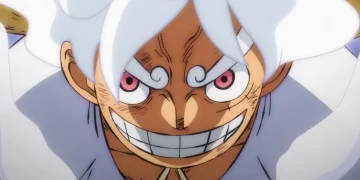At first glance, the hero society depicted in My Hero Academia appears straightforward: individuals wielding their quirks to aid others earn the esteemed title of Pro Heroes, while those who misuse their powers for malevolent ends are cast as villains.
However, beneath this seemingly clear-cut dichotomy lies a world far more nuanced and true to life.
In My Hero Academia, characters such as Bakugo, Best Jeanist, and Mirio Togata bear the mantle of Pro Heroes. Yet, not all who wear this badge are deserving of its honor.
Some have ascended to this status through dubious means, driven by corrupt motives rather than a genuine desire to serve.
Others, despite their designation, lack the qualities necessary to fulfill the duties expected of a Pro Hero. Their presence in this esteemed group serves as a stark reminder of the system’s flaws.
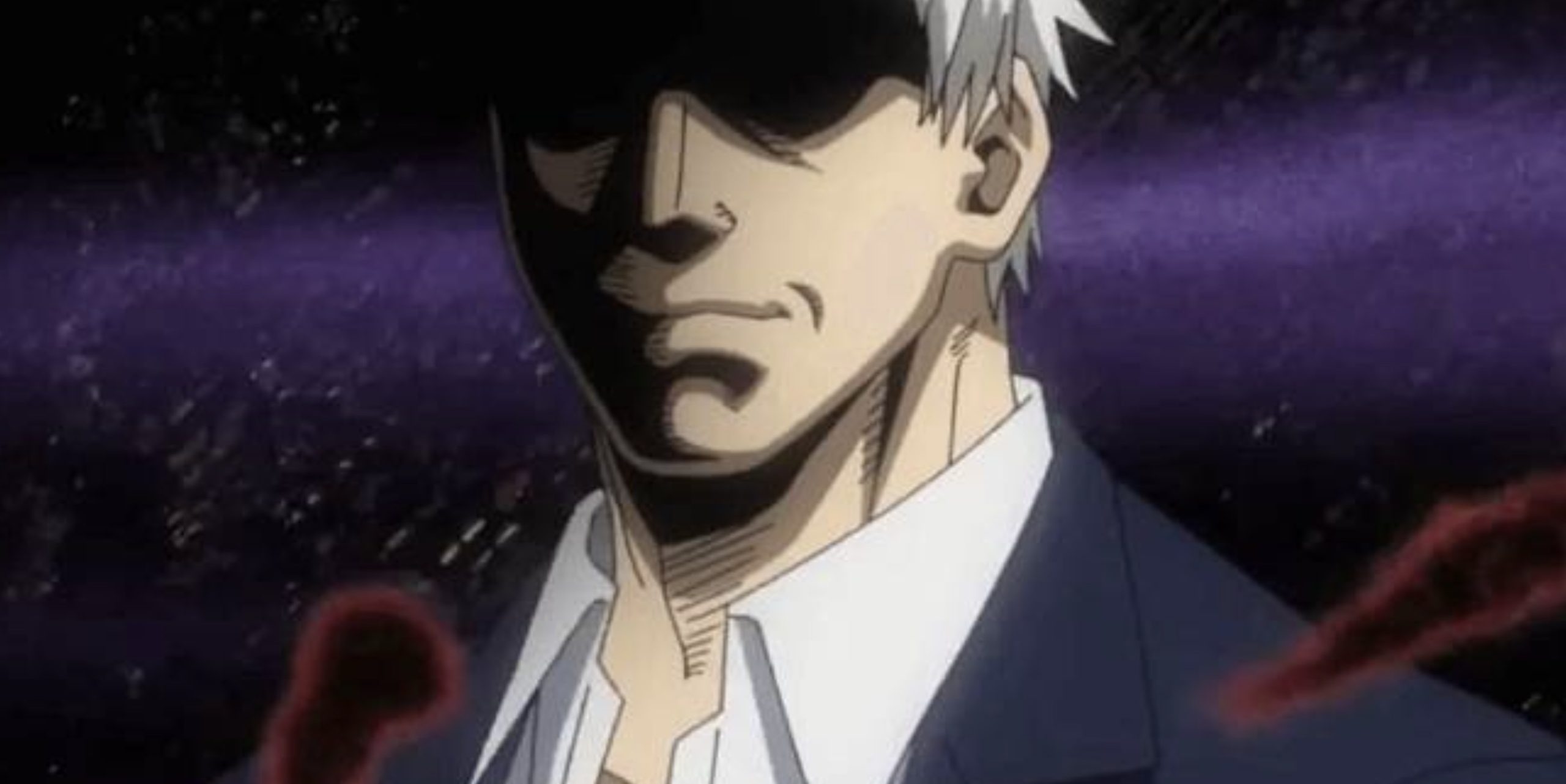
The portrayal of these questionable Pro Heroes underscores the series’ departure from simplistic hero-versus-villain tropes. Instead, it goes into the complexities of human nature and the inherent gray areas that exist within any society.
In doing so, My Hero Academia challenges the notion of heroism as a black-and-white concept, presenting it instead as a multifaceted spectrum where moral ambiguity reigns supreme.
This nuanced approach not only adds depth to the narrative but also reflects real-world complexities. In our own society, individuals often ascend to positions of power through less-than-scrupulous means, and not everyone who holds a prestigious title is necessarily deserving of it.
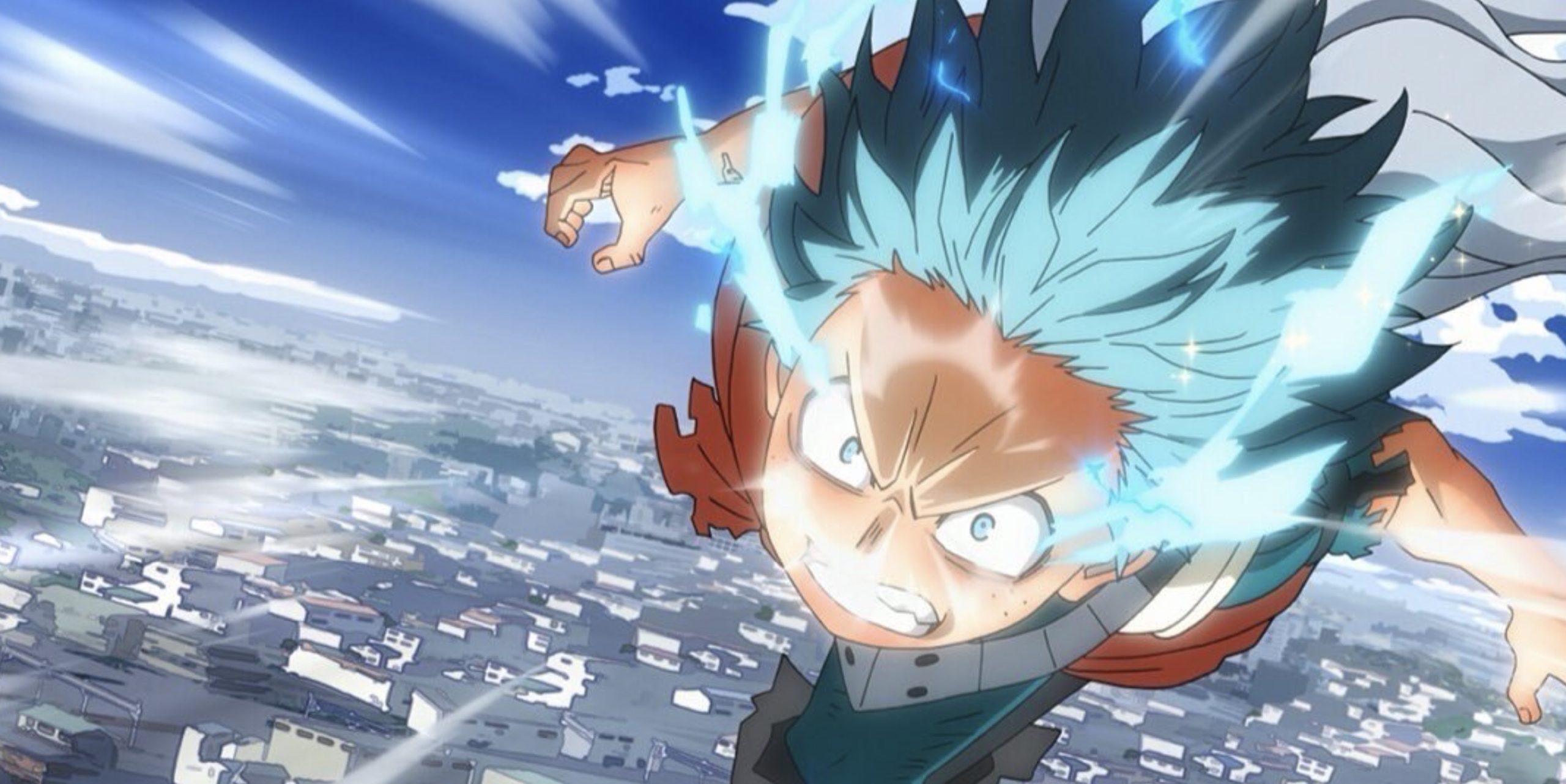
My Hero Academia’s exploration of these themes serves as a poignant commentary on the fallibility of human institutions and the need for constant vigilance in the face of corruption.
By highlighting characters who defy traditional expectations of heroism, My Hero Academia encourages viewers to question established norms and challenge the status quo.
It reminds us that true heroism is not defined by titles or accolades but by one’s actions and intentions. In a world where the line between hero and villain is blurred, it is up to individuals to explore the complexities of morality and forge their own path toward righteousness.
Shishido And 7 Other Heroes Of My Hero Academia Who Should Have Become A Hero
Here is a list of the 8 Heroes of the series, who are not worthy enough to be a “Hero”.
8. Shishido
Shishido, also known as The No. 13 Pro Hero of Japan, commands formidable prowess in combat, owing much of his strength to his quirk, Lion, which endows him with the physical attributes of the majestic beast after which it is named.
However, beneath this veneer of power lies a glaring flaw that impedes his effectiveness as a hero: a pronounced propensity for hot-headedness and competitiveness.
These traits, while undeniably formidable in battle, do little to enhance Shishido’s standing as an exemplar of heroism. In a profession that demands unwavering courage and selflessness, his penchant for impulsivity and rivalry stands in stark contrast to the noble ideals upheld by society’s esteemed guardians.
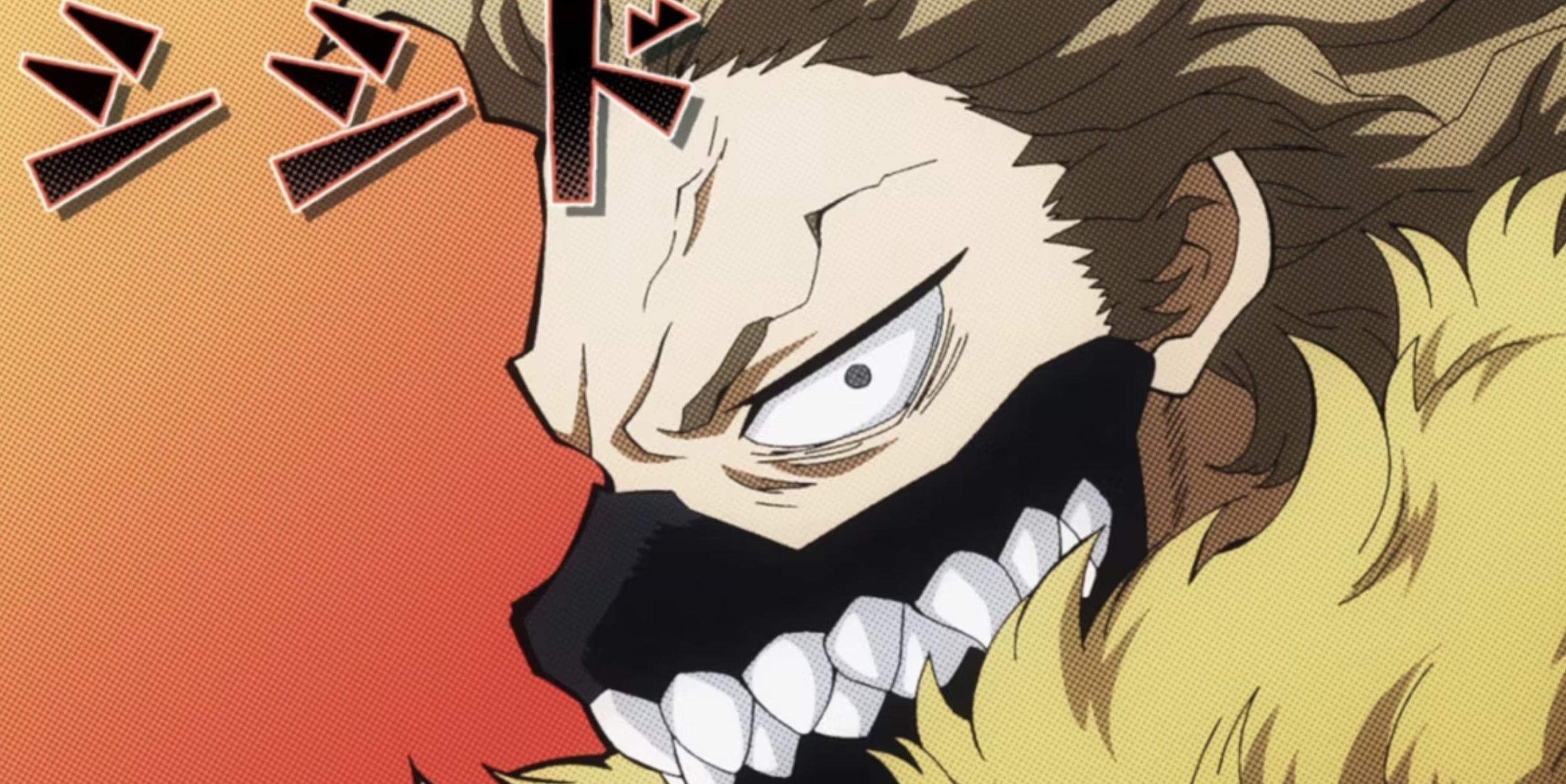
The paradox of Shishido’s character underscores a recurring theme within the narrative of My Hero Academia—one that revolves around the dichotomy between inherent qualities and societal expectations. I
The series frequently raises questions about the suitability of individuals with volatile temperaments for the role of heroism, citing Katsuki Bakugo as a prime example of someone whose fiery disposition ostensibly disqualifies him from heroics.
Yet, when juxtaposed with the actions of Shishido, The No. 13 Pro Hero, such assertions ring hollow. How can one condemn Bakugo for embodying traits that are seemingly embraced and even celebrated in another revered hero?
This incongruity challenges preconceived notions about heroism and underscores the complexity of human nature—a theme that permeates throughout the series.
7. Uwabami
The allure of fame and fortune inevitably accompanies the life of a Pro Hero, casting a shadow over the noble pursuit of heroism itself. Within the My Hero Academia, this phenomenon finds embodiment in the figure of Uwabami, a Pro Hero whose fame eclipses her dedication to her heroic duties.
Uwabami’s status extends beyond that of a mere hero; she is a veritable celebrity, basking in the limelight of adoration and acclaim.
However, her self-professed allegiance lies not with the mantle of heroism, but rather with the glitz and glamour of the fashion world. In a candid admission of her priorities, Uwabami openly acknowledges her penchant for modeling, relegating her heroics to a secondary role.
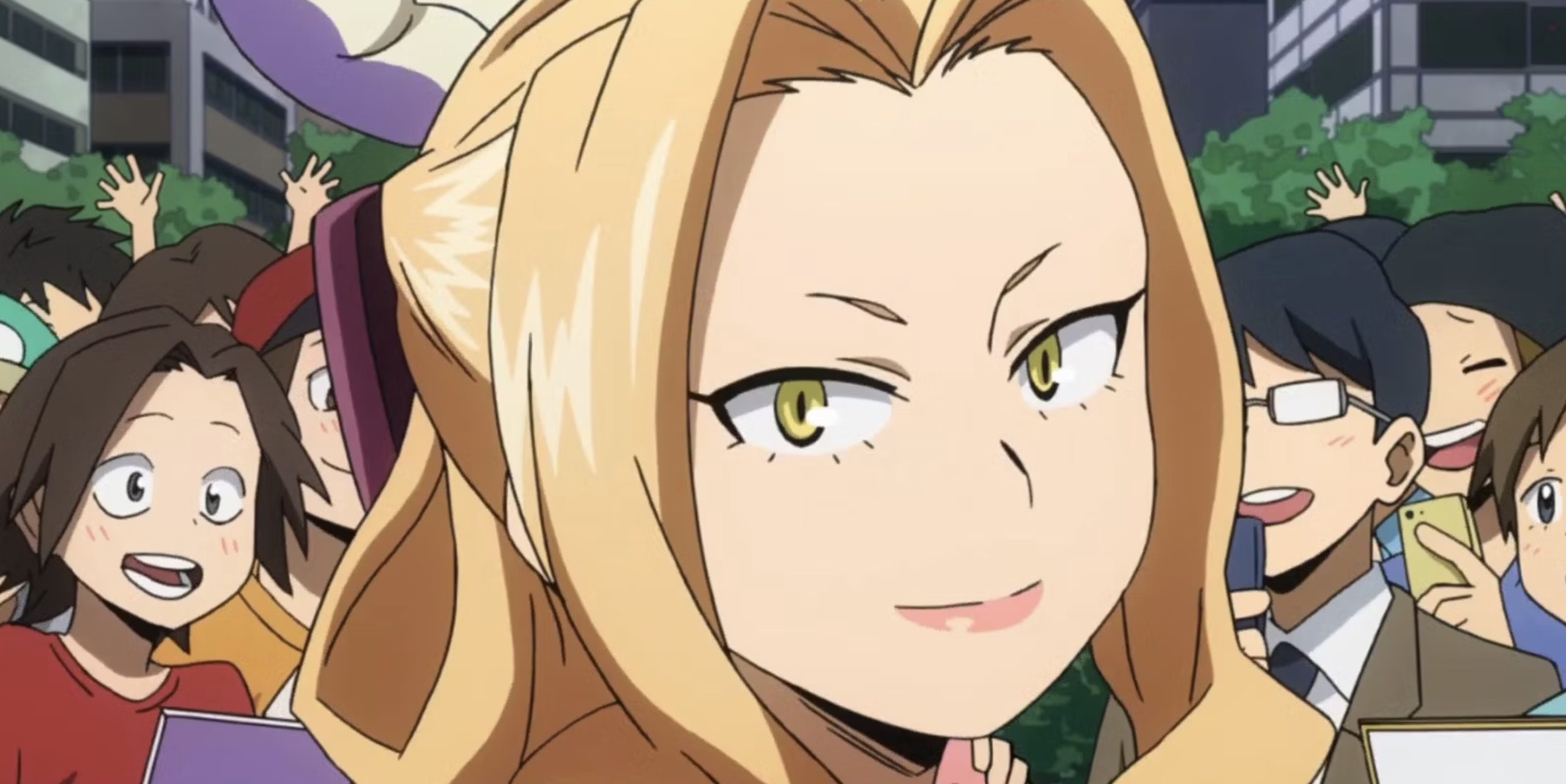
The ramifications of Uwabami’s choices are palpable, particularly for aspiring heroes like Momo Yaoyorozu and Itsuka Kendo, who find themselves interning under her auspices.
Rather than nurturing their potential as heroes, Uwabami steers them towards the supermodeling—a decision that squanders their burgeoning talents and detracts from their true calling.
While Uwabami occasionally deigns to collaborate with fellow heroes, it is evident that such endeavors pale in comparison to her primary pursuit of fame and glamour.
Her actions serve as a stark reminder of the pitfalls that accompany the intersection of heroism and celebrity, wherein the pursuit of personal gratification supersedes the altruistic ethos that underpins true heroism.
In the grand hero society, Uwabami’s example stands as a cautionary tale, highlighting the dangers of prioritizing personal ambition over the greater good.
As heroes, it is incumbent upon individuals to rise above the allure of fame and fortune, dedicating themselves wholeheartedly to the service of others—a noble endeavor that transcends the fleeting allure of celebrity status.
6. Lunch Rush
In a manner reminiscent of Power Loader, the case of Pro Hero Lunch Rush presents a similar conundrum, albeit on a smaller scale. Much like his colleague, Lunch Rush’s identity is primarily defined by his role as head chef within U.A. High School’s cafeteria, renowned for his culinary prowess. Yet, the question lingers: does he truly necessitate the title of a Pro Hero?
Lunch Rush’s limited appearances on-screen offer scant insight into his capabilities beyond the culinary arts. His proficiency in the kitchen, while undoubtedly invaluable in sustaining the student body and faculty alike, does not inherently demand the trappings of heroism.
Indeed, the notion of requiring a hero license to fulfill his duties as a chef appears tenuous at best.
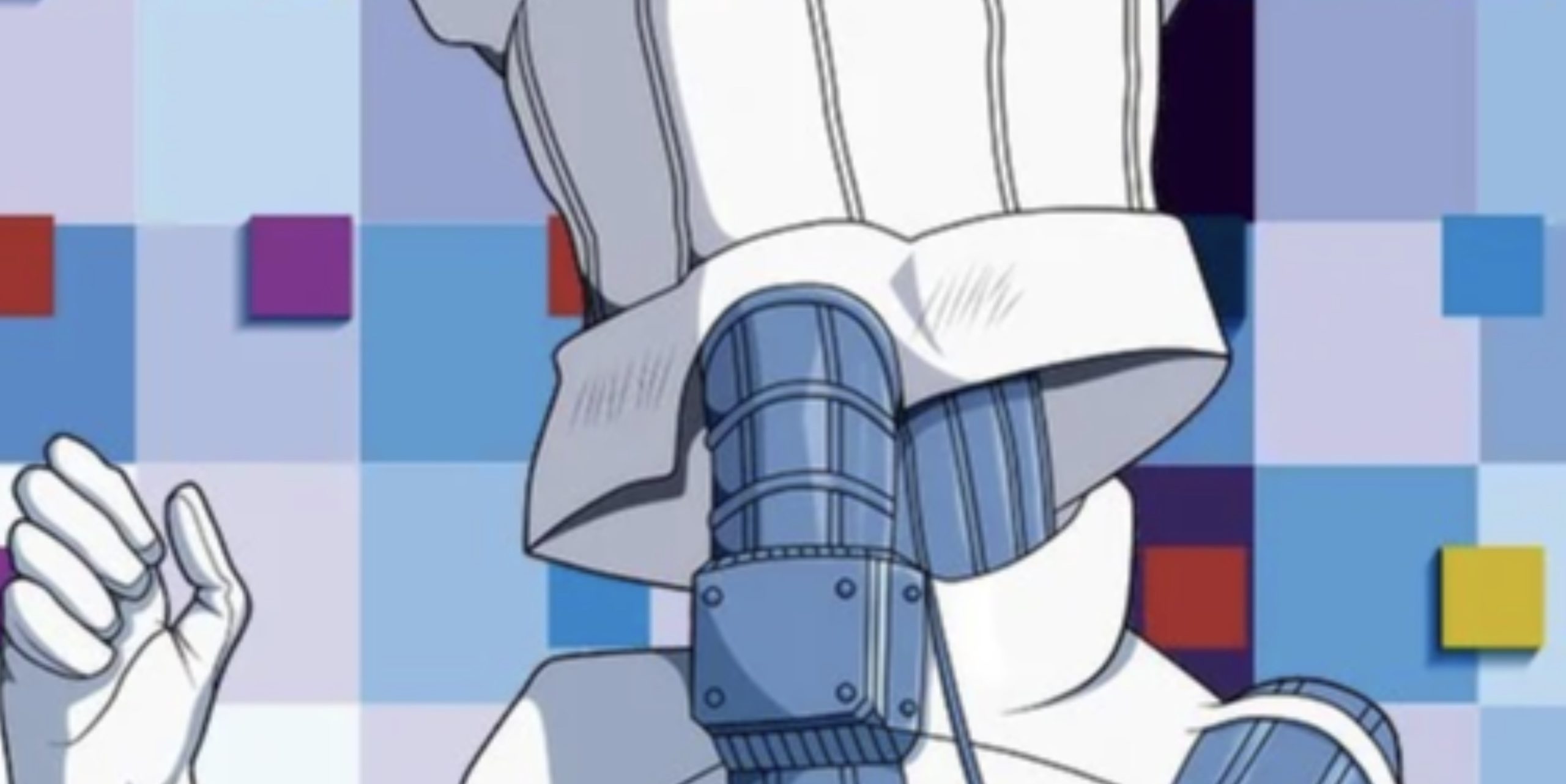
One cannot discount the importance of his role in nourishing and nurturing the next generation of heroes, a duty he undoubtedly executes with unwavering dedication.
However, it prompts reflection on whether his talents might have found equal fulfillment in alternate avenues, such as pursuing a career as a professional chef or establishing his own culinary enterprise.
Nevertheless, despite the ambiguity surrounding Lunch Rush’s heroics, his commitment to fortifying the physical and mental fortitude of U.A.’s students serves as a witness to his noble intentions.
In a world teeming with adversities and uncertainties, his unwavering focus on nurturing the potential of aspiring heroes stands as a beacon of steadfast dedication.
5. Power Loader
Within the esteemed faculty of U.A. High School, renowned Pro Heroes naturally abound, their presence lending credibility to the institution. Yet, amidst these celebrated figures, there exists a curious anomaly: Higari Maijima, or as he is more commonly known, Power Loader.
A virtuoso in machinery and technology, Maijima assumes the role of manager within the Support Development Studio—a position that aligns seamlessly with his expertise.
However, the peculiarity arises from the fact that despite bearing the mantle of a Pro Hero, Power Loader’s exploits beyond the confines of the school remain conspicuously absent.
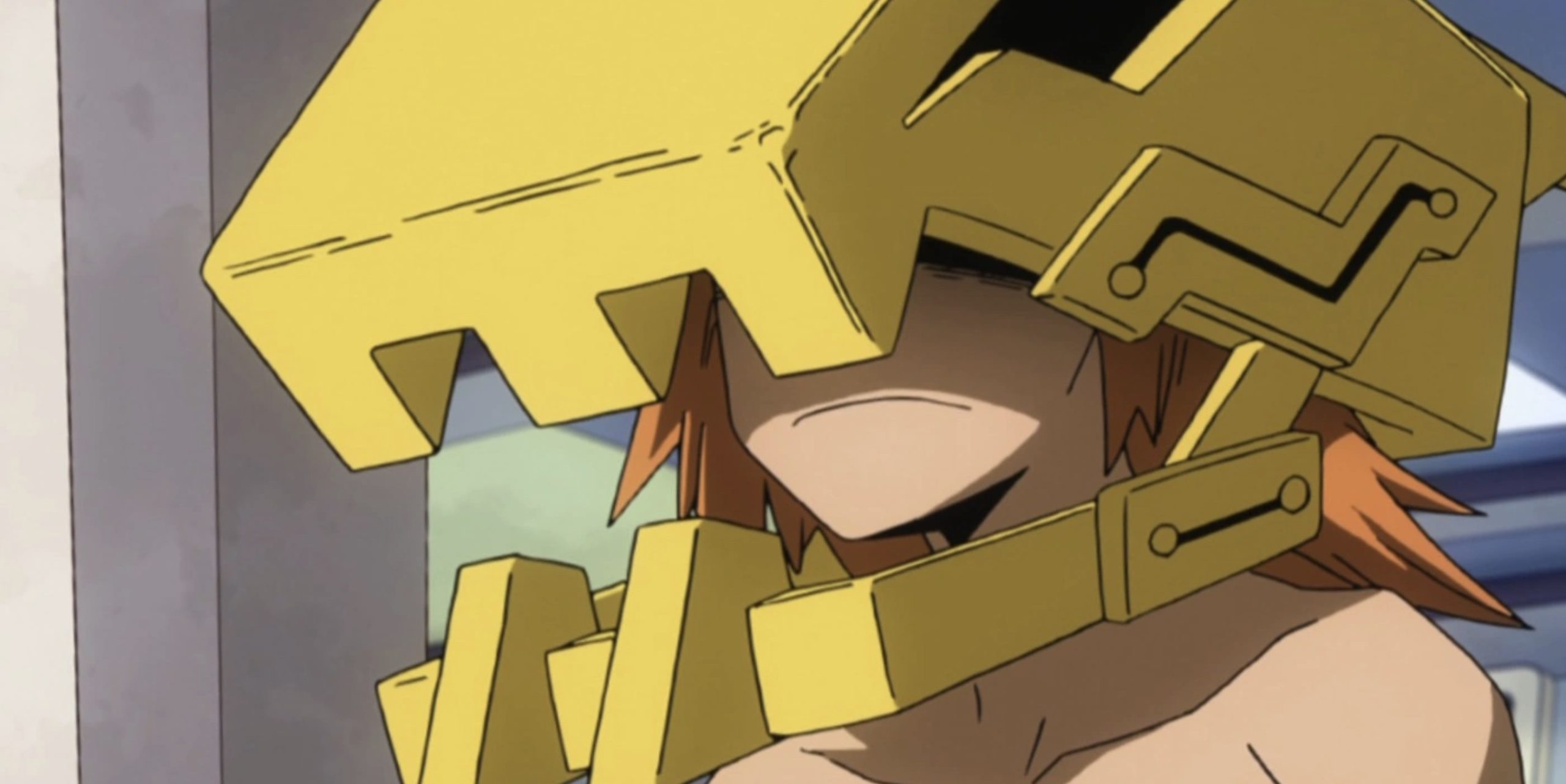
It becomes apparent that his true calling lies not in the field of heroics, but rather in the engineering and innovation within the school’s walls.
Unless explicitly required by U.A. to possess a Hero license as a prerequisite for his position, it appears that Power Loader’s heroism serves a more symbolic purpose rather than a practical one.
This divergence from the conventional trajectory of a prohero underscores the flexibility and diversity of roles within the hero society depicted in My Hero Academia.
Power Loader’s choice to focus on his strengths as an engineer rather than conforming to traditional expectations of heroism challenges the rigid dichotomy between heroes and civilians. It reinforces the notion that heroism is not confined to acts of physical valor but can manifest in myriad forms, each equally valuable in its contribution to society.
4. Manual
The harsh realities of the real world often find their mirror in the fictional My Hero Academia. In this universe, as in our own, there exists a stark dichotomy: those who wield powerful quirks for nefarious ends, and those who aspire to utilize their abilities for the greater good, yet find themselves lacking in strength or efficacy. Masaki Mizushima, known by his hero moniker Manual, epitomizes this poignant paradox.
Manual embodies kindness and altruism, harboring a sincere desire to aid others. However, his aspirations are hindered by the limitations of his quirk—a mundane water-based ability that seldom proves advantageous in heroic endeavors.
Even his hero costume and appellation fail to capture the imagination, lacking the flair and intrigue that often accompany heroic personas.
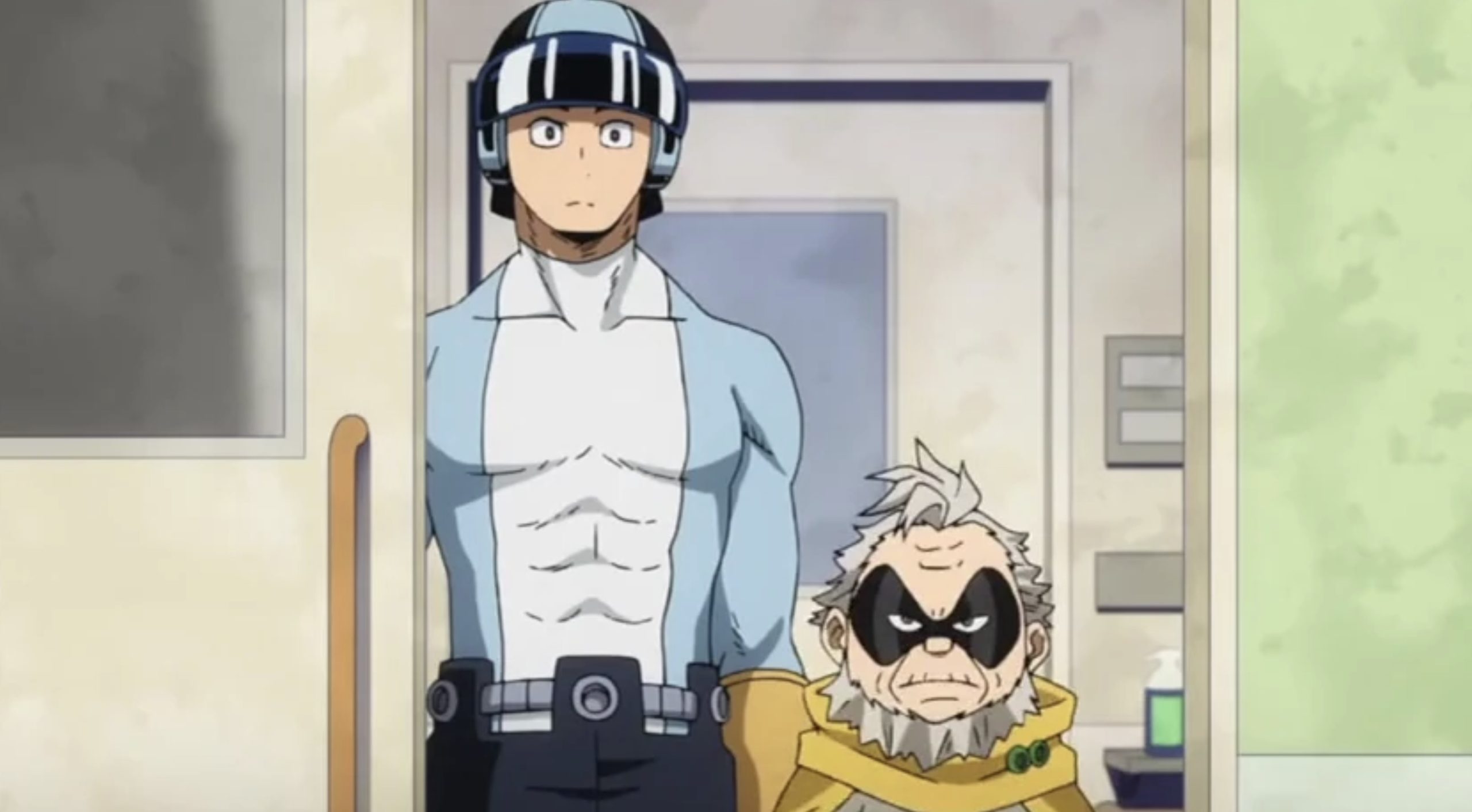
While the narrative of My Hero Academia often champions the notion of individuals transcending the constraints of their quirks through diligent training and perseverance, Manual’s plight serves as a sobering reminder of the inherent obstacles that some may face.
Despite the potential for growth and development, Manual’s struggles are compounded by his own lack of self-assurance, which serves as a formidable barrier to his progress as a Pro Hero.
Nevertheless, amidst the shadows of self-doubt and inadequacy, Manual’s unwavering compassion shines as a beacon of hope. Despite his perceived shortcomings, his heart remains steadfastly aligned with the noble ideals of heroism, a witness to his indomitable spirit and unwavering integrity.
Manual’s story serves as a poignant reminder of the complexities inherent in the pursuit of heroism. It underscores the importance of resilience and self-belief, while simultaneously highlighting the inherent unfairness that pervades both fictional universes and our own.
Yet, amidst the darkness, Manual’s unwavering commitment to doing good serves as a glimmer of light—a witness to the enduring power of compassion in the face of adversity.
3. Slidin’ Go
Tatsuyuki Tokoname, alias Slidin’ Go, once stood as a beacon of charm and cheer among the ranks of ground-level Pro Heroes. With a quirky sliding ability and an infectious personality, he endeared himself to others with his earnest efforts to assist and uplift those around him.
His penchant for doling out hugs as a gesture of comfort further solidified his reputation as a benevolent figure within hero society.
However, the revelation of Slidin’ Go’s true allegiance sent shockwaves through the hero community. Unbeknownst to his colleagues, he had clandestinely aligned himself with Re-Destro’s Meta Liberation Army, a villainous organization bent on upending the status quo.
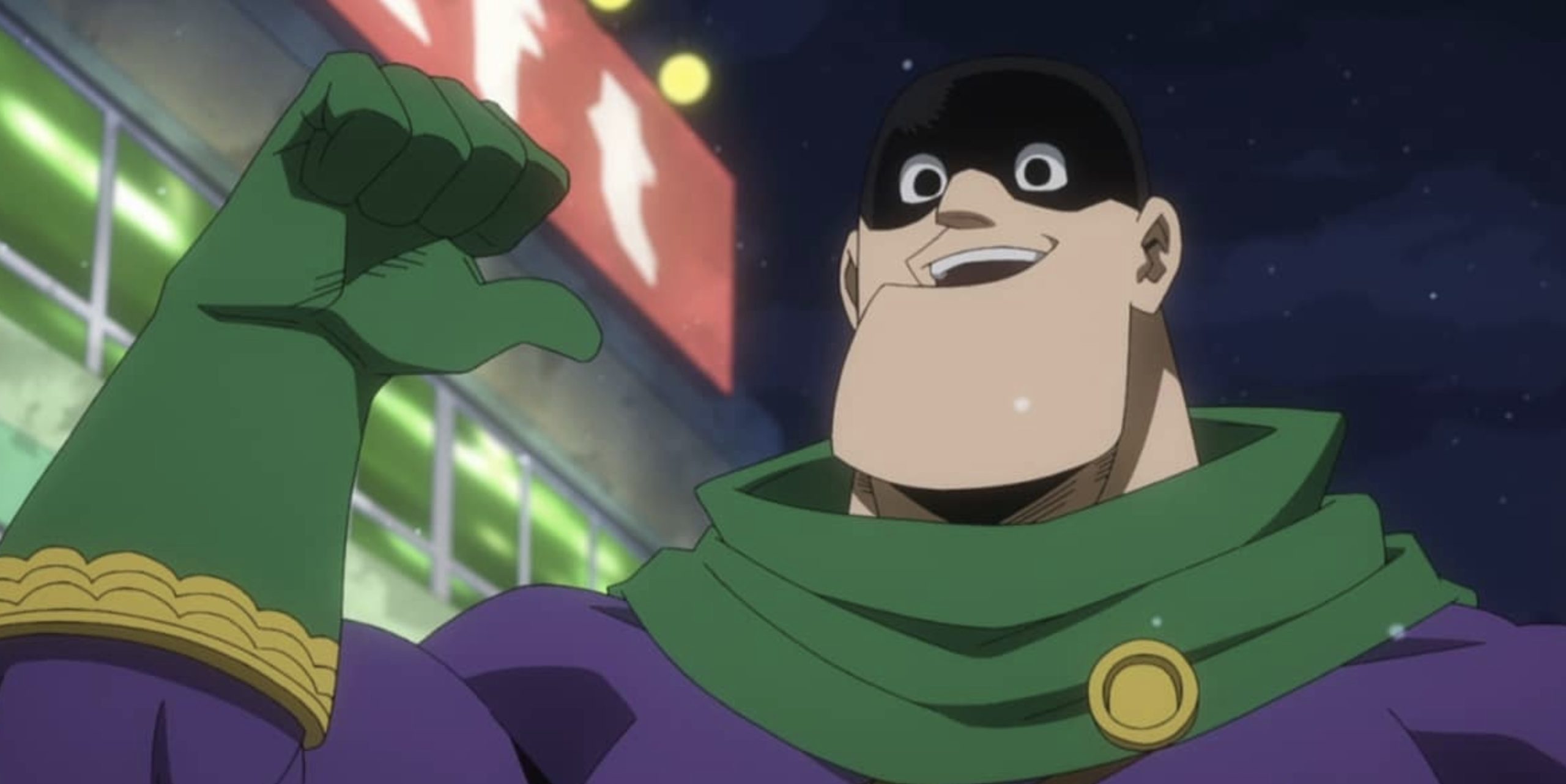
The precise moment of his defection remains shrouded in mystery, leaving those who once trusted him reeling from the betrayal.
Slidin’ Go’s treacherous actions cast a pall over his previous facade of heroism, exposing it as a mere facade masking his sinister intentions. His willingness to betray his fellow heroes for the sake of personal gain stands as a damning indictment of his character, calling into question the legitimacy of his status as a Pro Hero.
Indeed, the revelation of Slidin’ Go’s duplicity serves as a sobering reminder of the dangers of misplaced trust and the threat of deception lurking beneath the surface.
In a world where heroes are tasked with safeguarding the innocent, the presence of traitors within their midst serves as a stark reminder of the fragility of trust and the need for constant vigilance.
As hero society grapples with the repercussions of Slidin’ Go’s betrayal, it serves as a poignant reminder that heroism is not merely defined by flashy quirks or affable personalities, but by the steadfast commitment to upholding justice and integrity, even in the face of adversity.
And for Slidin’ Go, the revelation of his true nature serves as a stark reminder that true heroism can never be faked—it must be earned through unwavering dedication to the greater good.
2. Endeavor
In My Hero Academia’s hero society, Enji Todoroki, known by his hero moniker Endeavor and revered as the current No. 1 Pro Hero, emerges as a figure shrouded in moral ambiguity.
While his prowess in battle is unquestionable, his character and motivations paint a far more troubling picture—one that diverges sharply from the archetypal image of a virtuous hero.
Endeavor’s ascent to the upper echelons of heroism is marked by a singular obsession: to surpass All Might, the paragon of heroism, at any cost. This relentless pursuit of supremacy led him to forge a tumultuous path, one marred by callousness and ruthlessness.
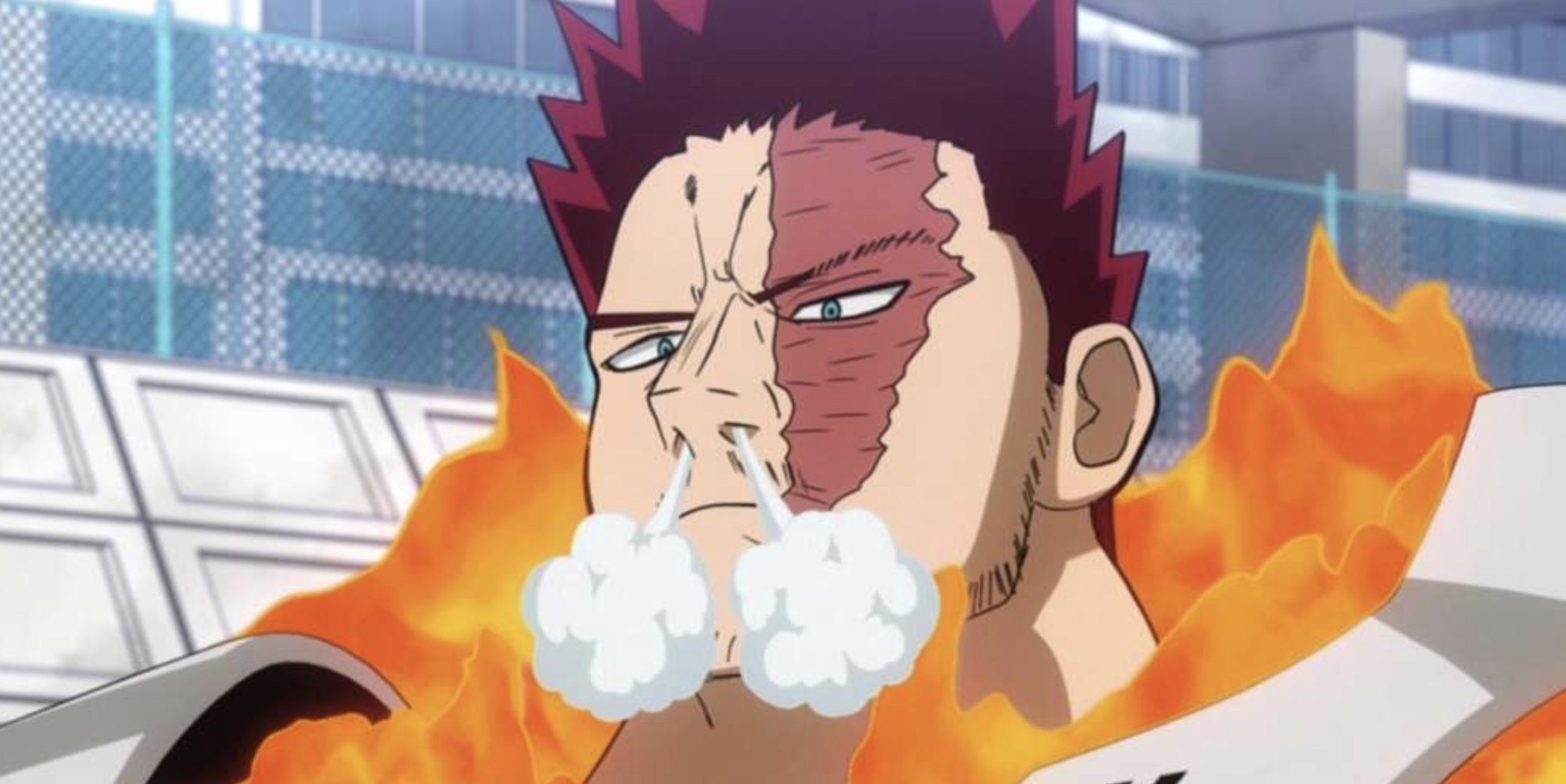
His marriage to Rei and the subsequent birth of numerous children, all orchestrated in service of his ambition, serve as stark reminders of the depths to which he would sink in pursuit of his goals.
Yet, perhaps the most egregious transgressions lie in his role as a father—a position he exploited to perpetuate his quest for dominance. His treatment of Toya, Shoto, and Rei, characterized by physical and psychological abuse, stands as a witness to the moral bankruptcy that underpins his ambitions.
In his ruthless pursuit of power, Endeavor sacrificed the very foundations of familial love and unity, leaving behind a trail of devastation in his wake.
Endeavor’s legacy, tarnished by his egregious actions, serves as a cautionary tale—a stark reminder of the inherent dangers of unchecked ambition and ego. While his prodigious strength may have earned him accolades and adulation, his moral bankruptcy renders him unworthy of the esteem bestowed upon him.
Yet, amidst the shadows of his past transgressions, there exists a glimmer of redemption—a tentative step towards atonement, however belated it may be.
Endeavor grapples with the weight of his sins, striving to reconcile his past misdeeds with a newfound sense of accountability. Though his efforts may never fully expunge the scars of his past, they serve as a witness to the enduring capacity for growth and redemption—a beacon of hope in a world rife with darkness and despair.
1. Yoroi Musha
Yoroi Musha, the Equipped Hero, within the My Hero Academia’s hero society. Adorned in samurai armor and exuding an aura of gravitas, he amazed fans with his imposing presence and mysterious allure.
Anticipation ran high as fans speculated about the nature of his quirk and eagerly awaited his debut in action.
However, the revelation of Yoroi Musha’s true colors cast a shadow over his erstwhile mystique. In the aftermath of the harrowing Paranormal Liberation War, during which heroes faced unprecedented scrutiny and condemnation, Yoroi Musha swiftly announced his retirement—a decision motivated not by a steadfast commitment to justice, but rather by a desire for fame and respect.
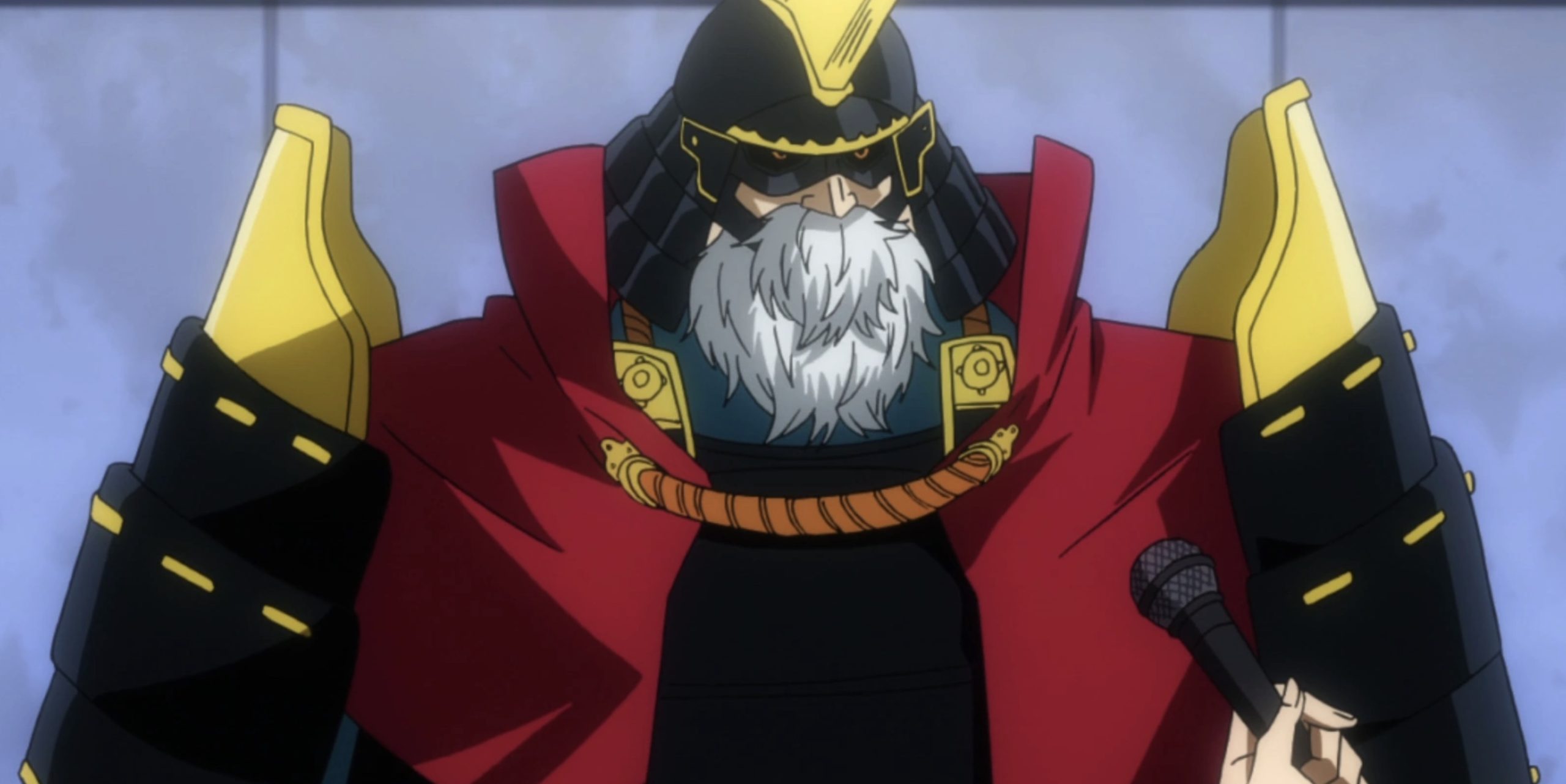
While Yoroi Musha was not alone in his decision to step away from the hero scene in the wake of public backlash, his actions stood in stark contrast to those of his peers.
Heroes like Death Arms demonstrated resilience and unwavering resolve, reaffirming their dedication to the noble ideals of heroism despite the adversity they faced.
Yet, unlike his counterparts who emerged from the crucible of adversity with renewed determination, Yoroi Musha faded into obscurity, his once-promising presence relegated to the annals of disappointment. His abrupt disappearance from the series left fans disheartened, robbing them of closure and relegating his character to the unfulfilled potential.
In My Hero Academia’s narrative, Yoroi Musha’s tale serves as a cautionary reminder of the dangers of prioritizing personal gain over the greater good.
His fall from grace stands as a sobering witness to the fleeting nature of fame and the enduring legacy of true heroism—a legacy that, sadly, eluded him in the end.

